Genesis was criticised when it launched little over a year ago in Europe for offering only diesel and petrol engines - powertrains that felt geared towards America, a country in which it has found success.
The Genesis GV60 answers that: the brand's first electric model falls into Europe’s most relevant segment. And there’ll quickly be more, too. Electric versions of the GV70 and G80 will arrive by the end of this year. By 2025, Genesis will launch only electric models, and by 2030, that's the only type of cars it will sell.
Europe is a tricky one to break, though. You only have to look at the demise of Nissan-owned premium brand Infiniti to see that. As Genesis boss Dominique Boesch says: “Europe is considered the most demanding market. Coming here is not something you do without a lot of thought.”
Genesis is trying to do things differently, with the aptly named 'Genesis Difference'. The focus is not so much on the cars - but that, too (more of which, later) - but the overall experience. That includes, briefly, a personal assistant for your entire car-buying and owning experience; a five-year care plan; car deliveries and pick-ups to your home; transparent, fixed pricing; and 'studios', a modern-day dealership where you can scope out the models without salespeople on commission prowling around. Currently, the only studio in the UK is at Westfield shopping centre in London but more are coming.
The Hyundai-owned brand benefits from being part of the automotive giant, particularly on the technology and platform front. This GV60 shares its E-GMP platform with the Hyundai Ioniq 5 and Kia EV6, which means its chief traits are the same: flat floor, good efficiency, 800V electrics and 360kW ultra-fast charging.
It’s a similar size to those siblings, too, but about 100mm shorter at 4515mm, on a par with its closest rival, the Audi Q4 E-tron.
There are three models available: Premium, Sport and Sport Plus. Premium, as driven, is a rear-wheel-drive, single-motor set-up, whereas the other two use all-wheel drive and dual motors for varying degrees of power.
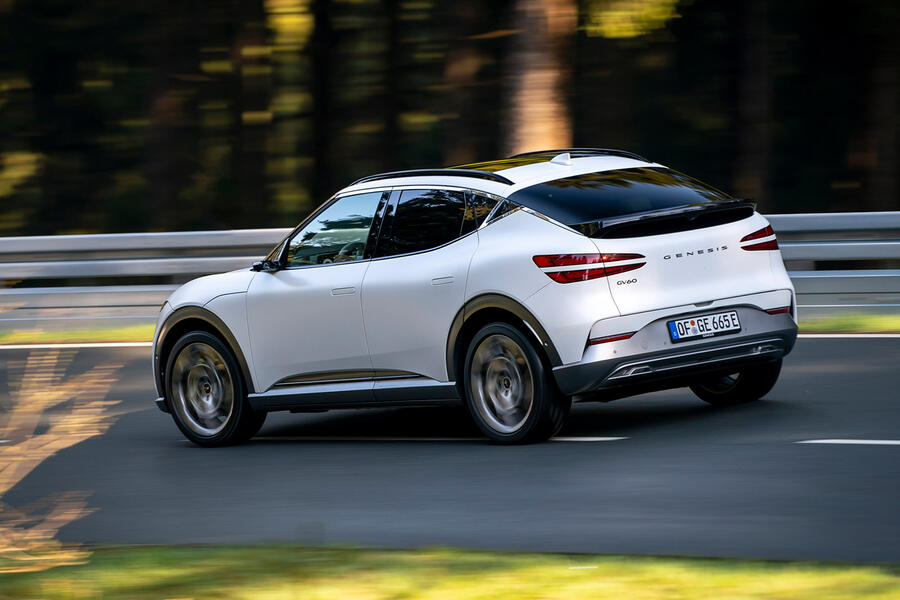
Genesis might be hedging its bets on overall experience rather than just the models it sells but it’s not ignoring that, either. Tyrone Johnson, who in a past life at Ford developed the third-gen, excellent Ford Focus RS among many others, is now in charge of development in Europe.
The GV60’s set-up, as with most EVs, means a low centre of gravity and excellent weight distribution. Tuned differently from the Ioniq 5 and EV6 to try and achieve the ultimate blend of comfort and dynamism, this is a car that keenly grips the road, holding corners with confidence and little roll. Steering for these chirpier sections of road is weighty, consistent and relatively direct, but could have even more feedback.


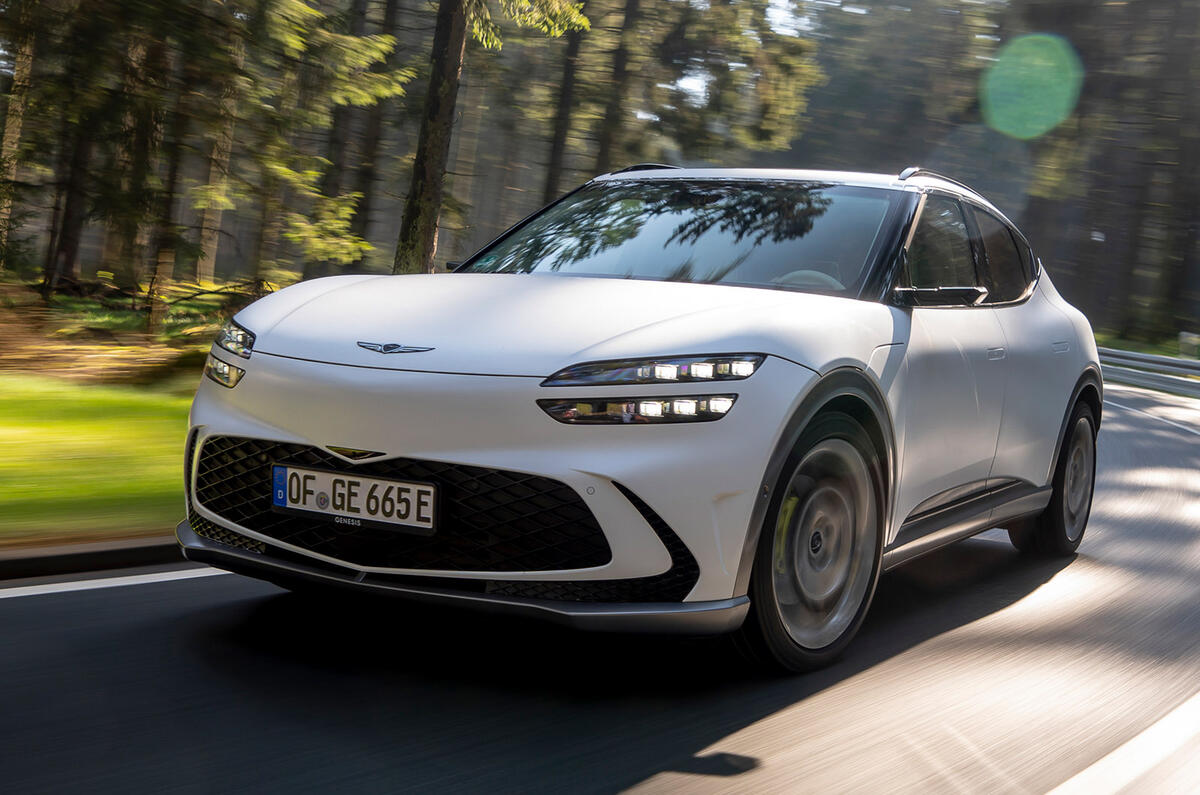
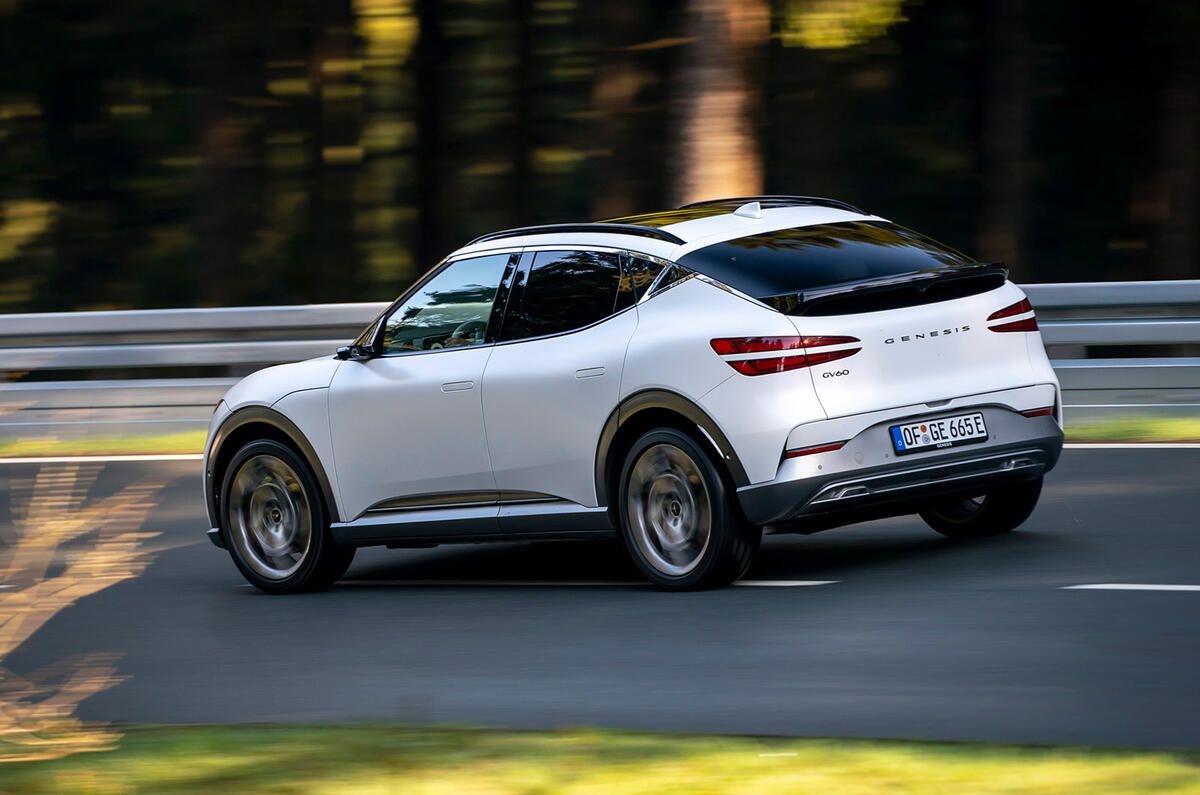
















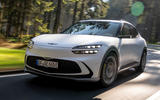


















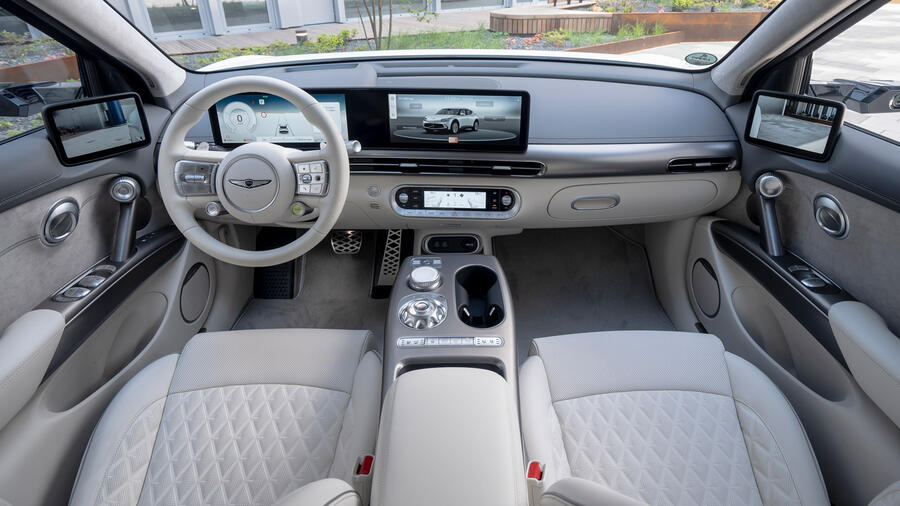
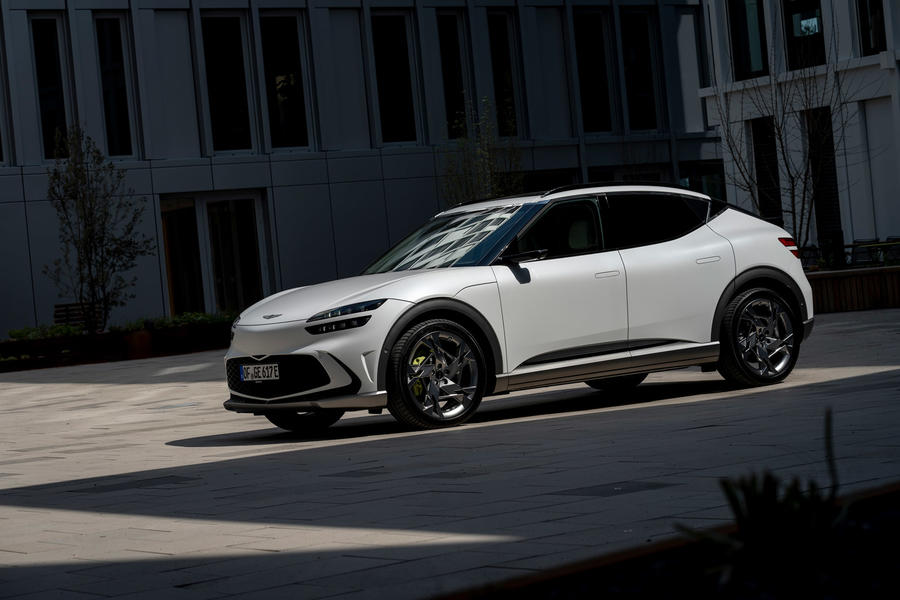


Add your comment